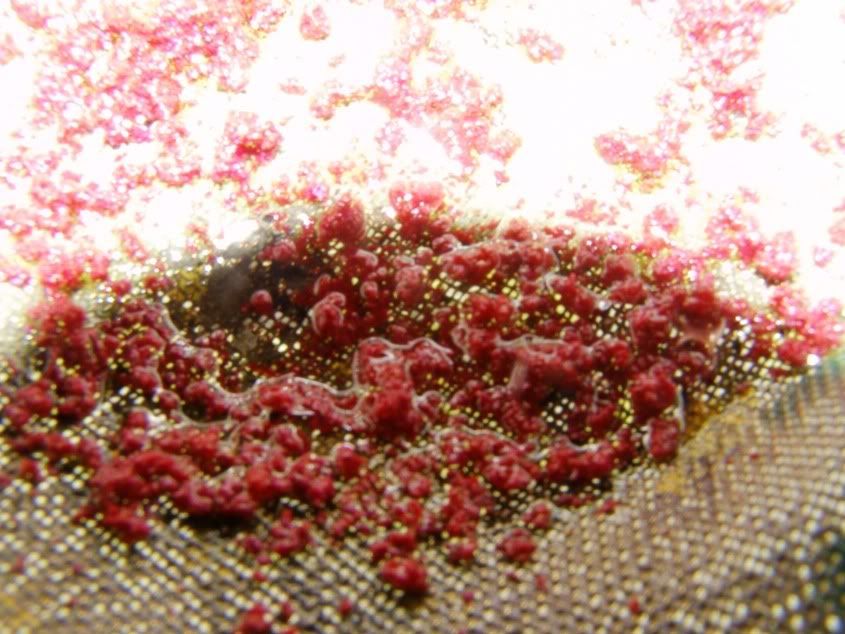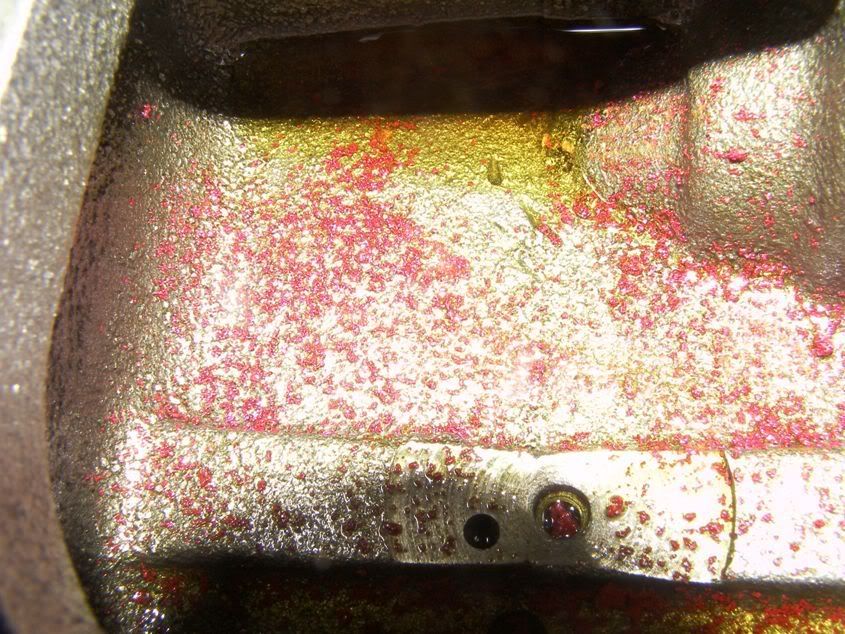
Last year I installed an complete new power disc brake kit from front to rear. All new lines cylinders, calipers master, everything. After a month I notice I was loosing braking power. I found these orange red type crystals, the consistancy of sand in the master. I looked as if old gasket material disinegrated into it, BUT if you take these crystals you can crush them down to a yellow paste, it also stains the skin on my fingers and it is difficult to wash off like a nicotine stain.
At the time last year I was using Mil-spec Silicone brake fluid that is used in US military trucks. Looking in the bottom of the gallon jug there was like a hadful of these orange crystals. I shrugged it off to the fluid being old and contaminated(lowest gov't bid). I replaced the master, flushed out the lines, and use a quart of commercial(Fade Free Dot 5) fluid that I got with my Corveete brake kit a few years back.
Fast forwad to last night I had lost 50% of my braking, so I was going to bleed the rear and as I was checking the fluid, the crystals were BACK! Here are some photos of the inside of my front resevoir and what I strained out of the fluid in the cylinder.
Has anyone else ever had this happen? I have been using Dot 5 in a dozen different cars and never experienced this. I strongly suspect the fluid is degrading as the first time I noticed it in the bottom of the gallon jug along with inside the master. This time when I poured it from the bottle it was clean(and a different mfg) but in 2 months time this orange plague appeared. Any thoughts comments or personal experience would be appreciated.





